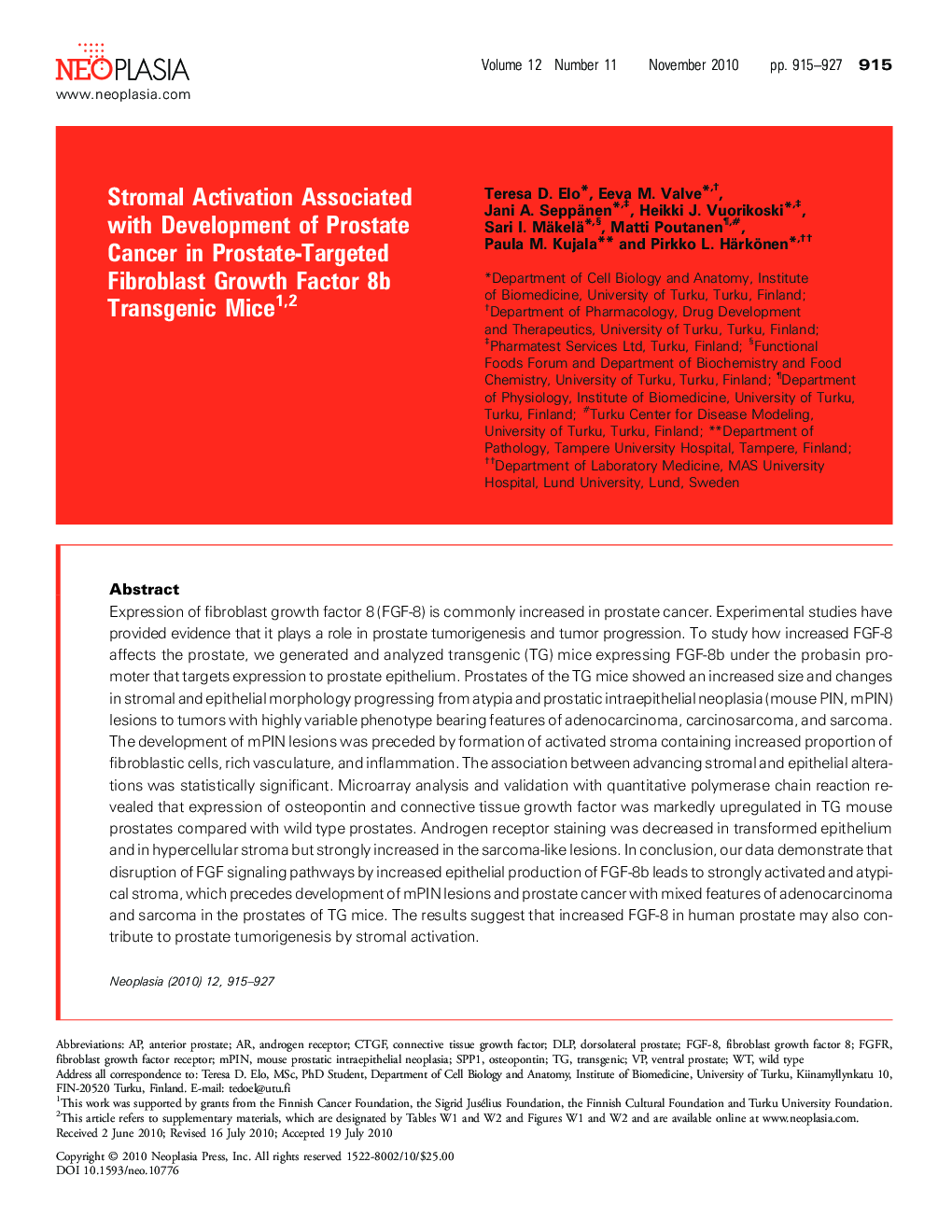| Article ID | Journal | Published Year | Pages | File Type |
|---|---|---|---|---|
| 2151914 | Neoplasia | 2010 | 16 Pages |
Abstract
Expression of fibroblast growth factor 8 (FGF-8) is commonly increased in prostate cancer. Experimental studies have provided evidence that it plays a role in prostate tumorigenesis and tumor progression. To study how increased FGF-8 affects the prostate, we generated and analyzed transgenic (TG) mice expressing FGF-8b under the probasin promoter that targets expression to prostate epithelium. Prostates of the TG mice showed an increased size and changes in stromal and epithelialmorphology progressing fromatypia and prostatic intraepithelial neoplasia (mouse PIN, mPIN) lesions to tumors with highly variable phenotype bearing features of adenocarcinoma, carcinosarcoma, and sarcoma. The development of mPIN lesions was preceded by formation of activated stroma containing increased proportion of fibroblastic cells, rich vasculature, and inflammation. The association between advancing stromal and epithelial alterations was statistically significant. Microarray analysis and validation with quantitative polymerase chain reaction revealed that expression of osteopontin and connective tissue growth factor was markedly upregulated in TG mouse prostates compared with wild type prostates. Androgen receptor staining was decreased in transformed epithelium and in hypercellular stroma but strongly increased in the sarcoma-like lesions. In conclusion, our data demonstrate that disruption of FGF signaling pathways by increased epithelial production of FGF-8b leads to strongly activated and atypical stroma, which precedes development of mPIN lesions and prostate cancer with mixed features of adenocarcinoma and sarcoma in the prostates of TG mice. The results suggest that increased FGF-8 in human prostate may also contribute to prostate tumorigenesis by stromal activation.
Keywords
Related Topics
Life Sciences
Biochemistry, Genetics and Molecular Biology
Cancer Research
Authors
Teresa D. Elo, Eeva M. Valve, Jani A. Seppänen, Heikki J. Vuorikoski, Sari I. Mäkelä, Matti Poutanen, Paula M. Kujala, Pirkko L. Härkönen,
